Tom Wilber has now become familiar to the Vietnamese public after the documentary Voice of Conscience aired on VTV1 on April 30, in which he was the main character. The film depicts the journey of Tom Wilber, the son of American prisoner of war pilot Eugene Wilber, in an effort to "clear his father's name" when his father dared to speak out against the war from his prison.
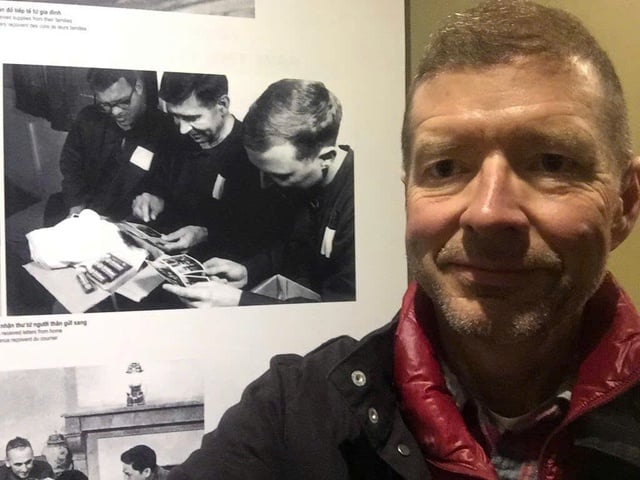
Mr. Tom Wilber first saw a photo of his father at Hoa Lo, during his first visit to Hoa Lo in 2016.
PHOTO: NVCC
In close collaboration with Hoa Lo Relics for over 10 years, Tom Wilber's return this time introduces the book American Prisoners for Peace - From Hoa Lo to America Today - Vietnamese version (The Gioi Publishing House) that he and scholar Jerry Lembcke co-authored (2024). The book serves as the foundation and provides arguments for the documentary.
Before the meeting with readers and the reunion with witnesses and the film and book crew (taking place on July 7 and 8 at Hoa Lo Relic Site), Tom Wilber had a conversation with Thanh Nien reporter on July 4.
"I AM ADDICTED TO VIETNAM "
In real life, Tom Wilber looks younger than he does in the movies and is in his late seventies. In just 10 years, he has made dozens of trips to Vietnam to find answers to his father's controversial choice, the truth behind the bars of Hoa Lo prison - where 8 American prisoners of war raised their "voices of conscience" and the hidden corners and silent notes of the war. "I am addicted to Vietnam", Tom said.
Tom especially mentioned a witness that moved him the most: "When I decided to go to Vietnam, I only knew about my father's injustice that needed to be properly explained, and the pain that my family had endured for over 50 years when facing insults and boycotts from extremist Americans. But when I met the witnesses living in Vietnam, especially Mrs. Dien Hong, wife of pilot Dinh Ton, who shot down my father's plane, I understood more about the feelings on the other side of the war. Mrs. Hong told me that her husband had been promised by his superiors that if he shot down another plane, he would be... on leave to get married, and my father's shot down plane was his fourth achievement to receive that "reward". Unfortunately, Mr. Ton passed away early from cancer, probably due to the effects of the war...".
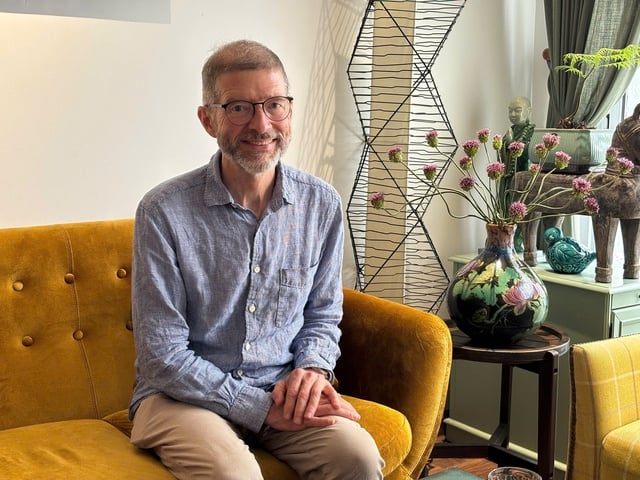
Researcher Tom Wilber talks with Thanh Nien reporter on July 4.
PHOTO: THUY LE
Contacts with soldiers and civilians helped Tom Wilber explain why Vietnam was able to defeat the US: "Deep down, I think the Vietnamese people have a very fundamental characteristic, which is to dare to sacrifice, especially when they have the same sacred common goal."
During flights back to Vietnam, when the plane was about to land, Tom Wilber would silently watch the prosperous, green cities and villages and suddenly recall the videos he had seen of American pilots bombing and destroying the North. Tom thought of the miracle of revival. But there were times when he saw the remaining bomb craters. "They are like scars from the war. Normalization has never been easy between two countries that were former enemies. If there were no tolerance and forgiveness from a country that had suffered much injustice and damage, and behind that were countless efforts at reconciliation from sympathy and self-examination of conscience...", Tom Wilber told Thanh Nien reporter.
THE POWER OF AWAKENING
Hoa Lo Prison is located very close to Quan Su Pagoda, where Tom's father once reached the limit of mindfulness when he heard the temple bell ringing every day. Tom once sought out 6 monks in Vietnam to explain it. "Instead of seeking strength from hatred, my father and 7 anti-war prisoners at Hoa Lo chose the strength of mindfulness. In some ways, my father's detention in Hoa Lo Prison for 5 years was also a blessing for him, as it brought him the value of mindfulness. And I think, that is also the core of the story of normalizing Vietnam - US relations later", Tom said.
He also added that the normalization of Vietnam-US relations for his family actually happened earlier. To be exact, in 1973, when his father was returned home. The first thing he did was gather his family and talk about how prisoners of war like him were not treated as badly as the US media reported at that time. "Naturally, we believed him. And for my family, the normalization of Vietnam-US relations began from that moment."
Tom was taught to read The Tale of Kieu by Mr. Bui Bac Van, who captured his father. Tom also learned the great poet Nguyen Du's self-questioning: "I don't know if in three hundred years/ Who in the world will cry for To Nhu?" "Thirty or three hundred years, no one can predict what will happen. But if God gives me another five or ten years to live, I vow to spend the remaining years of my life trying to help Vietnam overcome the consequences of war and continue the story of normalizing Vietnam-US relations," Tom said.
During the 2 years I worked and interviewed Tom Wilber, he always considered himself an unusual person for having been to Vietnam so many times. Vietnam in him was probably almost an obsession. But Tom said he had to thank that unusualness, because it helped him discover his father's story and the beauty and kindness of the people and country of Vietnam. Tom often joked that it takes a lot of unusual people to create normality, it takes a lot of small ordinary things to create something extraordinary - that is Vietnam!
Journalist Lina Pham (scriptwriter and director of the documentary Voice of Conscience )
Source: https://thanhnien.vn/nha-nghien-cuu-nguoi-my-tom-wilber-binh-thuong-hoa-quan-he-viet-my-da-dien-ra-tu-hon-50-nam-truoc-185250705210636899.htm



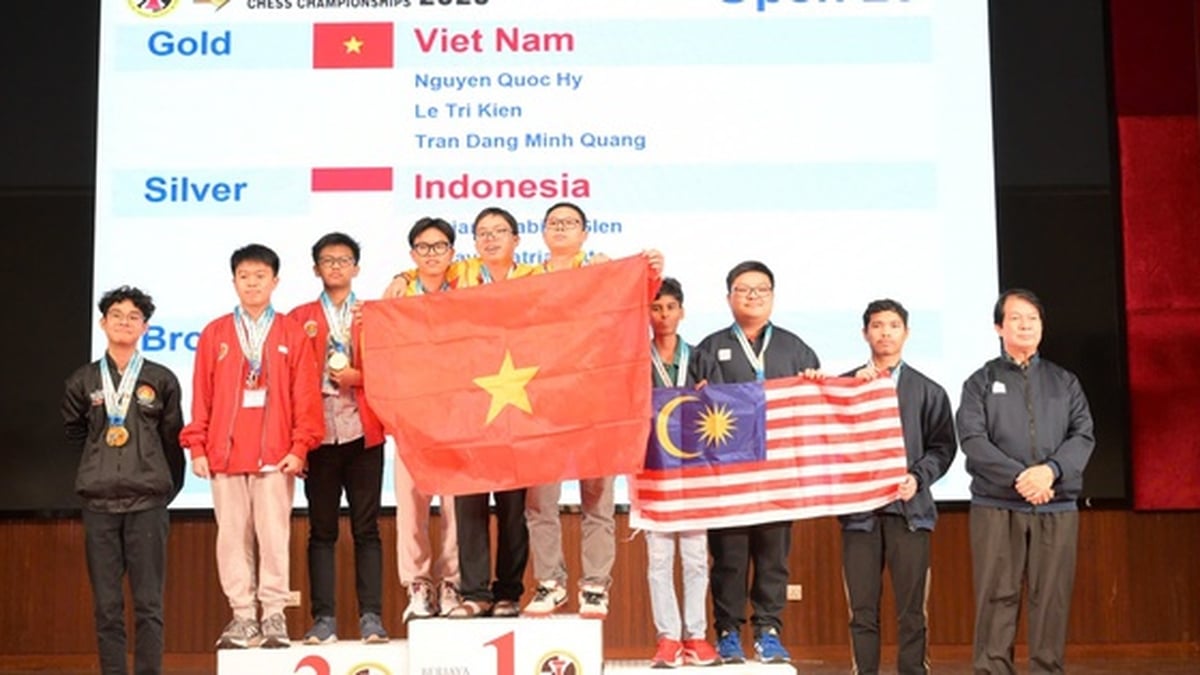


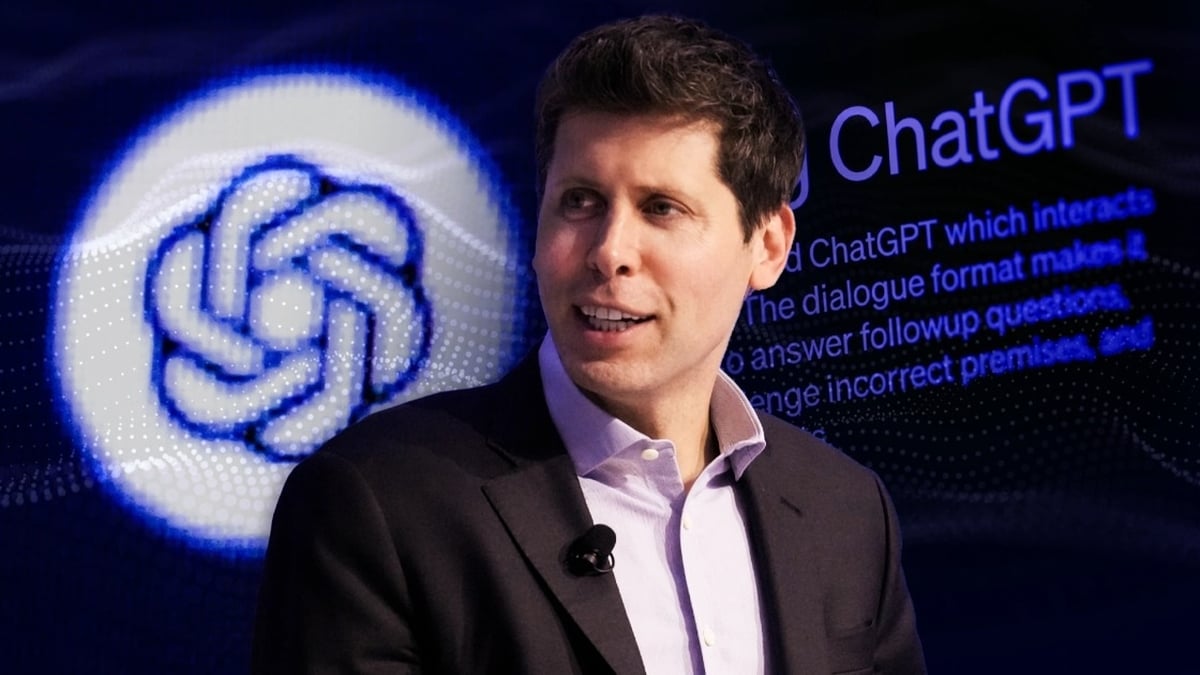
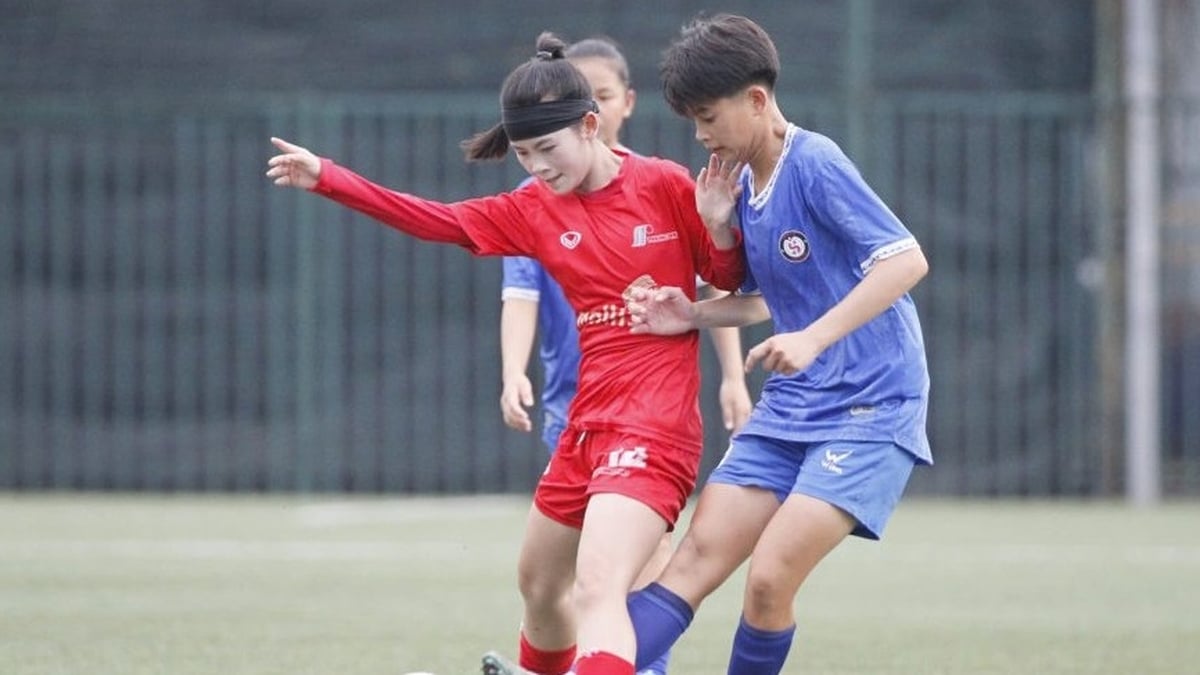
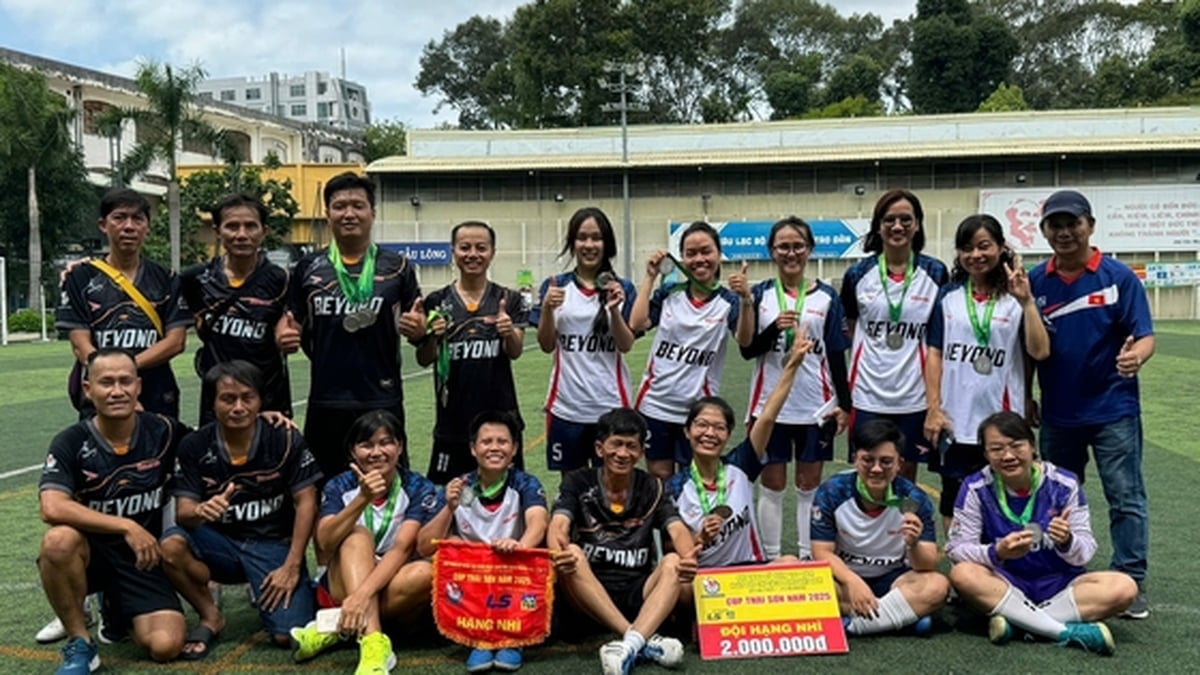
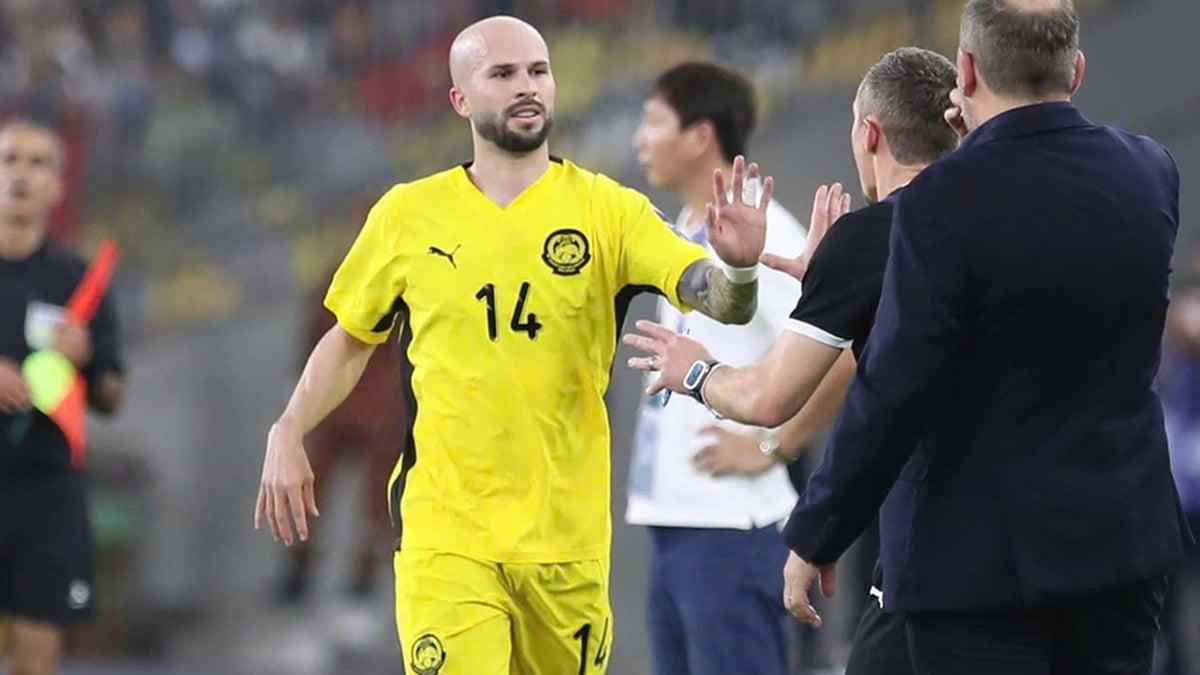













![[Photo] Gia Lai provincial leaders offer flowers at Uncle Ho's Monument with the ethnic groups of the Central Highlands](https://vphoto.vietnam.vn/thumb/1200x675/vietnam/resource/IMAGE/2025/7/9/196438801da24b3cb6158d0501984818)



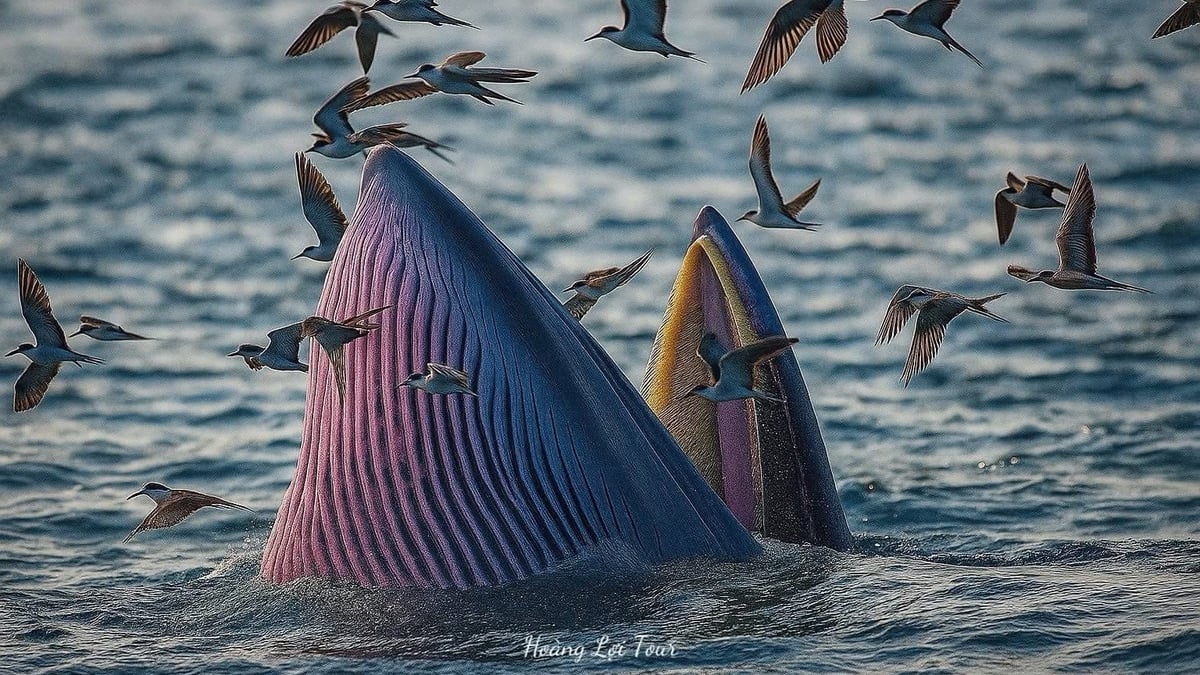






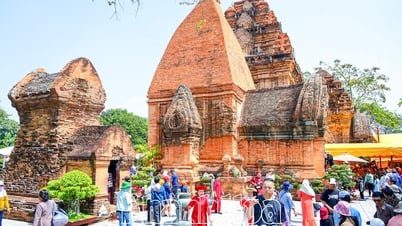

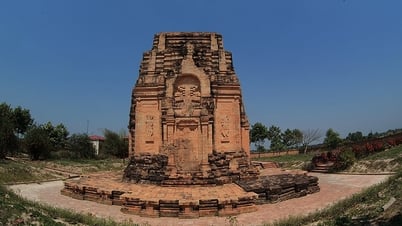

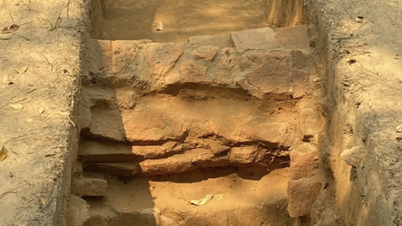





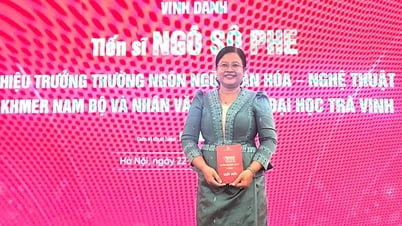



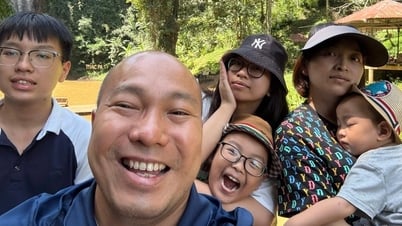

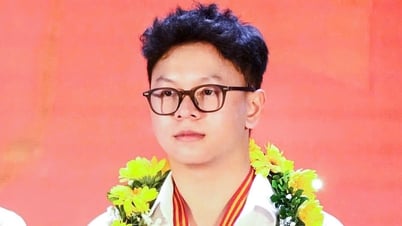



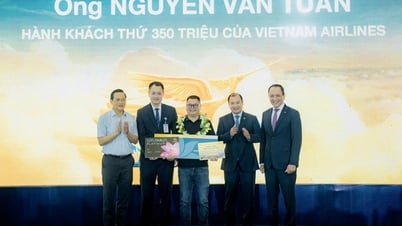

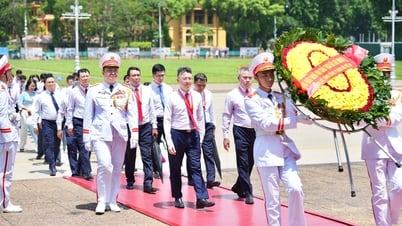

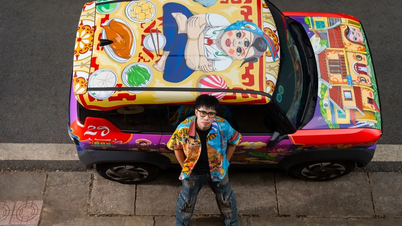

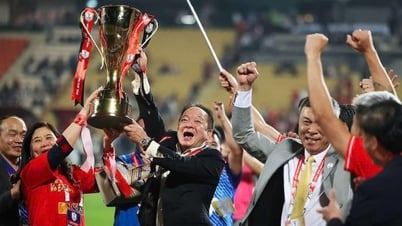
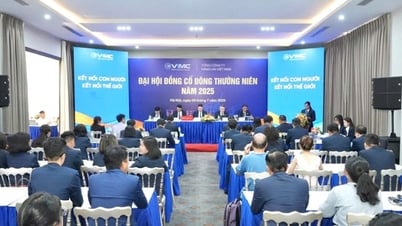

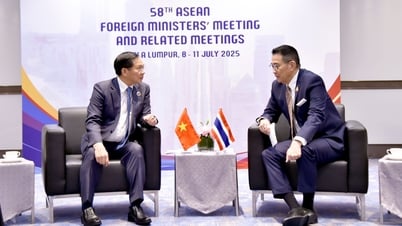

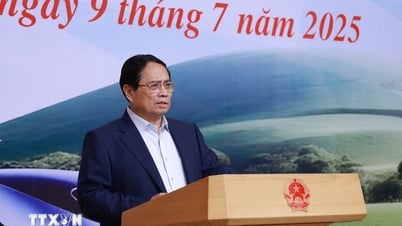
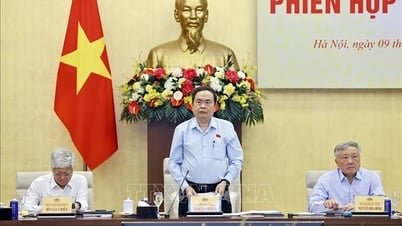

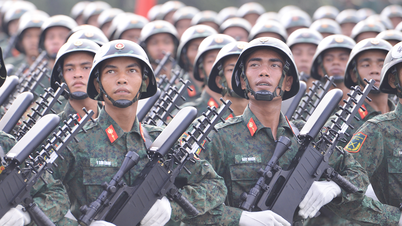

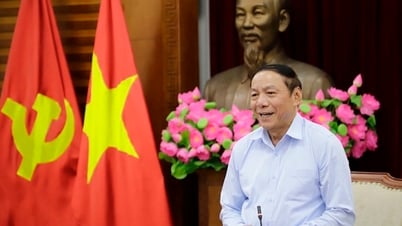

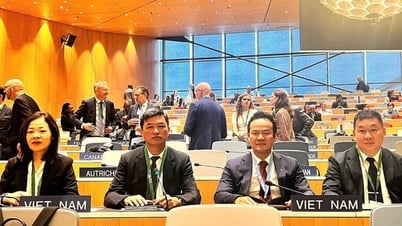

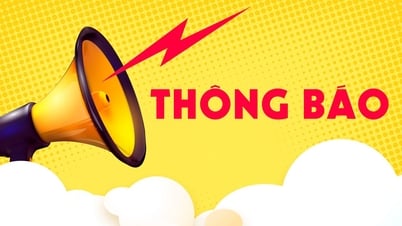

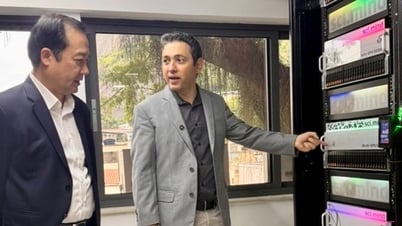
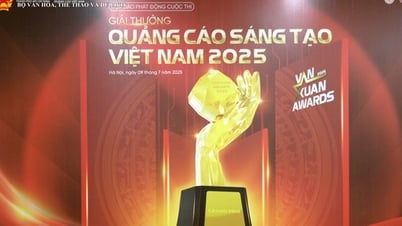







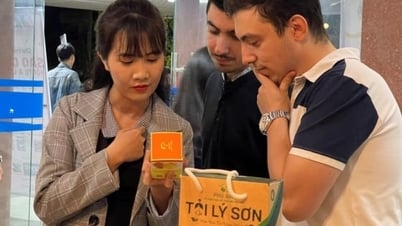

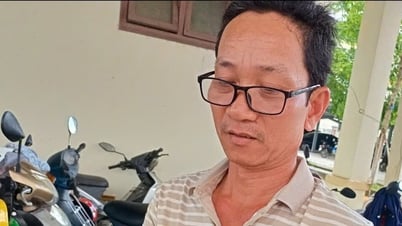

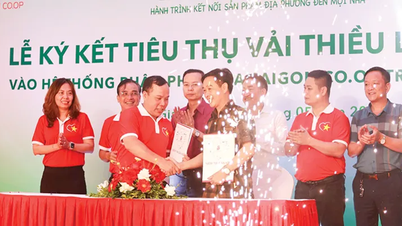
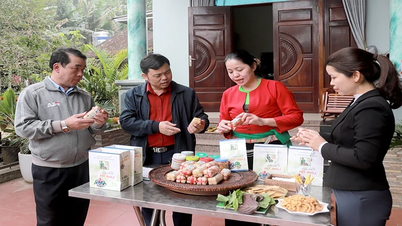




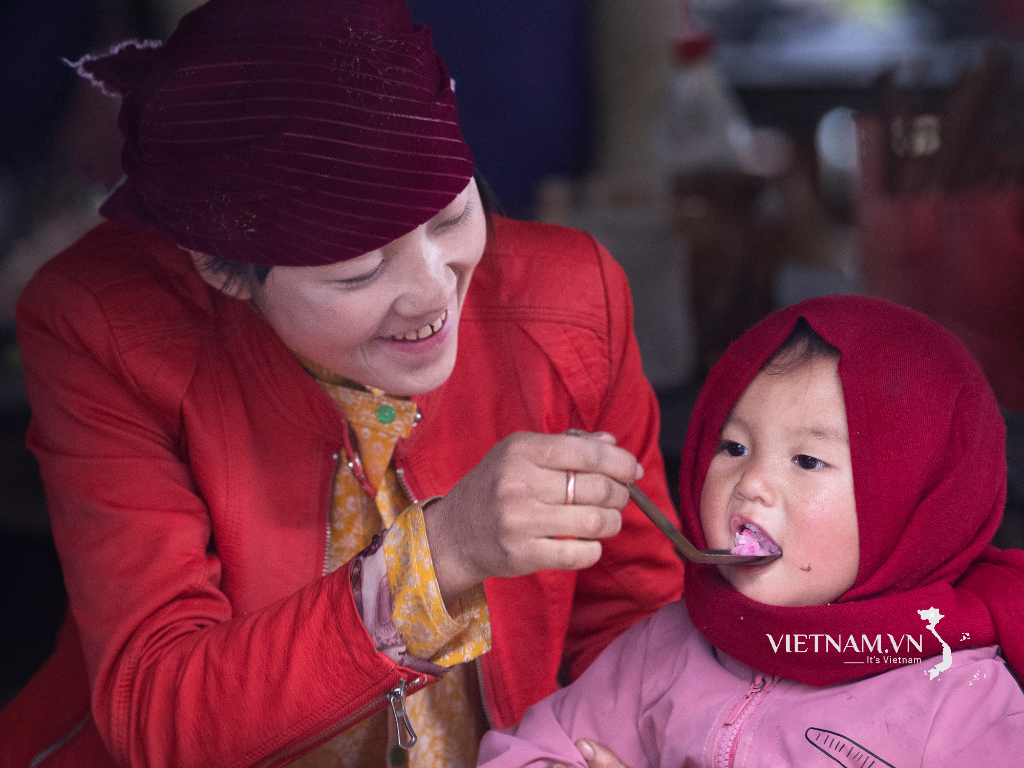
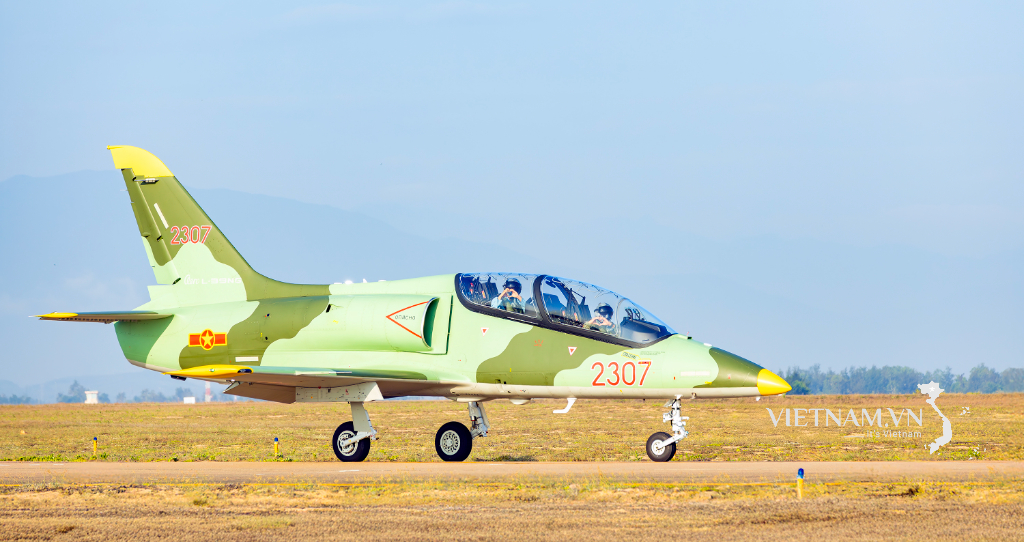

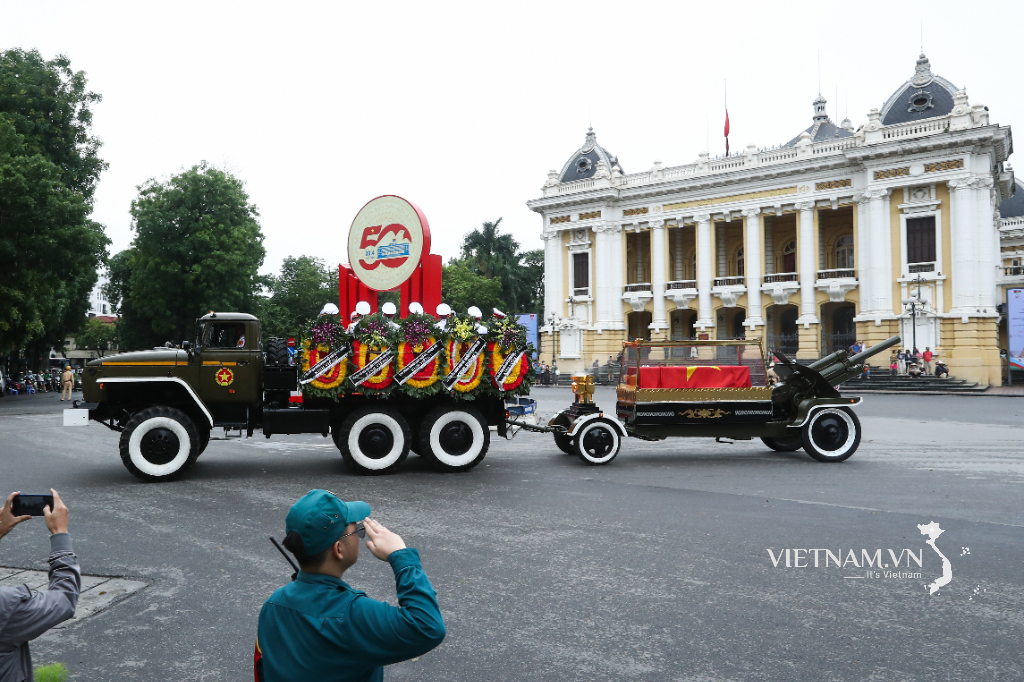
Comment (0)